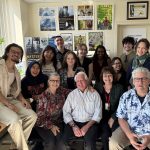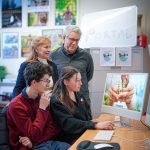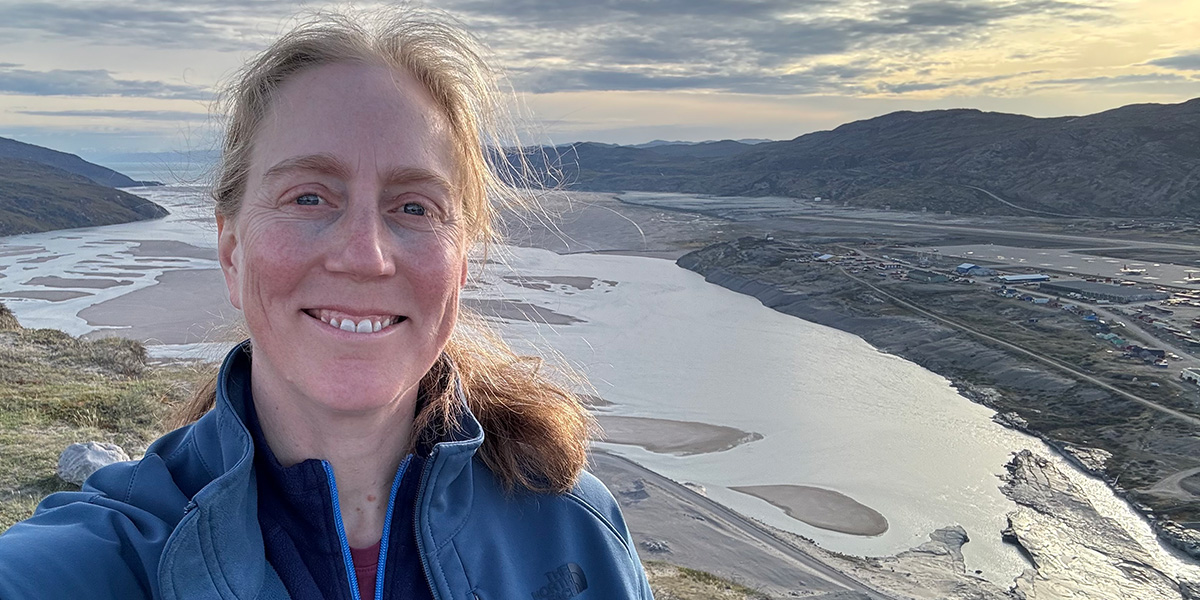
RCEI affiliate Åsa Rennermalm’s research mission takes her to the territory known as ground zero for climate change.
The Rutgers University professor has been leading field expeditions to Greenland for some two decades, tracking the flow of meltwater generated by the ice sheet.
“I love the physical sciences,” says Rennermalm, a professor of geography in the School of Arts and Sciences. “I love getting into the details of how climate change is transforming the ice sheet, though it is pretty disturbing because the changes are dramatic, and the consequences are profound.”
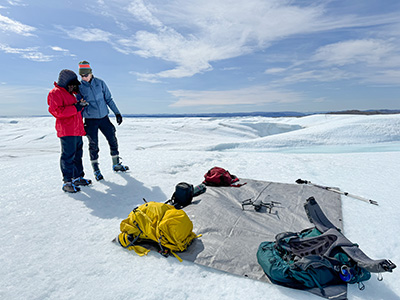
Rennermalm’s understanding of how climate change is taking hold in Greenland has led this year to a high-level, international collaboration that has her teaming up with researchers who share her focus on the Arctic region but bring expertise in fields such as public health, Indigenous communities, law, energy, and socioeconomic inequality.
Rennermalm is one of 20 scholars selected for the U.S. State Department’s prestigious Fulbright Arctic Initiative, which since 2015 has been bringing together researchers and professionals from across the eight Arctic nations to work on public policy issues.
“The innovative research and diverse perspectives of the Fulbright Arctic Initiative scholars advances our scientific knowledge and strengthens international collaboration and policy development,” Eric Carlson, U.S. Senior Arctic Official, said in a statement. “Their contributions will have a lasting impact on the Arctic and beyond.”
The group will explore three principal topics—climate change and Arctic resources, security and governance, and mental health and wellbeing—with the goal of developing policy proposals for creating a safe and sustainable Arctic.
“This is super exciting to me,” Rennermalm said. “This is the interdisciplinary approach we need to solve the big questions of the 21s century.”
The 18-month program kicked off this fall in the northern Norway city of Tromsø where Rennermalm and the other scholars met with government officials and prominent Arctic experts, including the president of the Sámi Parliament of Norway, which represents the indigenous people of northern Europe.
“There’s a strong element of justice and empowerment,” Rennermalm said of the program. “Indigenous populations living in many of these areas have often been marginalized, ignored and bulldozed over.”
She’ll collaborate remotely in smaller teams before the full group reconvenes in Greenland in 2025, followed by a final session in Washington, D.C. in 2026 where they will present policy recommendations to the public and to officials from the U.S. and other Arctic nations.
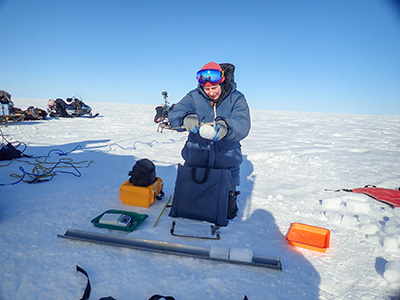
Rennermalm noted that she’s one of only two physical scientists in the group, which she said opens up intriguing possibilities for learning and cooperation.
“That is what drew me to the program,” she said. “It’s easy for me to find other natural scientists to work with. But it’s harder to find social scientists, planners, different types of scholars rooted in humanities that have the same type of interests.
“One of the strengths of this program is that it has you working collaboratively across disciplines, scholarly traditions, and languages.”
Her team will focus on “climate change and Arctic resources,” and includes an oceanographer and four social scientists with expertise in polar law, energy, human geography, inequality and other topics. Together, they’ll explore issues of environmental protection, economic development, and the health and wellbeing of local communities. The group will hold community listening sessions, develop a white paper, and write a policy brief.
“I think that between myself and the oceanographer, we’ll have a pretty complete overview of the physical dimension of climate change in the Arctic,” Rennermalm said. “Then we are going to connect with the members who bring a deeper understanding of the social and economic dimensions.”
She expects the experience will inform her day-to-day mission in Rutgers classrooms, where she is known for her engaging, conversational teaching style that helps students understand the impact of climate change and the science behind it.
During a recent session of her “Earth Systems” course, for example, she had students play a game of “Climate Bingo” with words like “atmospheric aerosols” and “Holocene” while she explained the methods scientists use to determine temperatures on earth going back hundreds of thousands of years.
She spoke against the backdrop of large slides showing how the steady, warm temperatures of the Holocene period—sustained for thousands of years—have been abruptly broken over the last century, coinciding with the Industrial Revolution. She explained to students that this rapid, human-driven temperature rise is unprecedented in recent geologic history.
“One of my goals is helping students understand how the science connects to their lived reality,” she said. “If I can bring more of the connection between science and society into the classroom, then it makes the science even more accessible and understandable.”
This article was originally published by SAS Newsroom.




